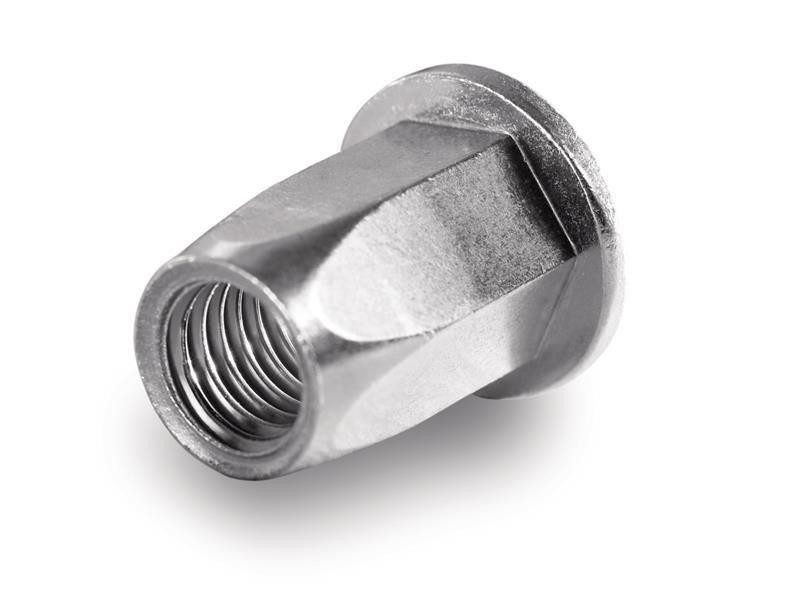One such range of products is Challenge Europe’s A4/ASTM 316 stainless steel fasteners. With the addition of molybdenum, A4 stainless (ASTM 316) is significantly more resistant to corrosion than the more popular A2 (ASTM 304) and slightly more expensive. Although A4 stainless is often referred to as marine grade, Challenge Europe has noticed an increasing need for this highly cost-effective grade to meet the demands of non-marine industries where equipment is subjected to more demanding service conditions.
The non-magnetic nature of A4 also makes it particularly suitable for use in instrument manufacture and the medical industry. Consequently, Challenge also has ranges of ex-stock nuts, bolts, screws and washers in A4 stainless for manufacturing and service/maintenance requirements.
The longevity of A4 grade fasteners makes them a firm favourite in UK industry. Now coupled with a service package such as Kanban, Lineside supply or Vendor Managed Inventory (VMI), Challenge Europe is able to provide design and production engineers with the fasteners they want at prices they need – and to work with purchasing departs so as to ensure smooth assembly flows.

Fastening to thin wall materials presents a number of challenges. Combine that with extremes of temperature and conditions and you have a serious problem when it comes to fastening. With exactly these issues, a rather unusual application in a high corrosion environment comes from Bollhoff.
For designers of winter sports equipment, finding the right way to attach foot bindings onto snowboards can sometimes be a case of ‘straight from one slippery slope to another’. However, in a recent series of evaluations to establish the preferred fastening option, a leading manufacturer of snowboards has settled on Bollhoff’s Rivnut blind rivet nuts to achieve the design objectives.
Fastening into, or onto, thin-wall materials is notoriously difficult, if a high-strength solution is required, so Bollhoff developed Rivnut, a range of products designed specifically to provide a secure and strong mounting for thin-wall use where tapped threads just won’t work. In fact, Rivnut can be used to great effect in both thin-wall metals and plastics (and combinations thereof) and is available in a range of sizes and finishes to suit most projects.
There aren’t many applications for mechanical fasteners that present the range of challenges found in snowboard mountings. The boards need to cope not just with a lifetime of multi-directional shock loading, together with abundant compression and vibrational forces, but also need to survive (for years) being subjected to extremes of both cold and wet when in use.
As a result, in addition to the necessary structural demands being made on the fasteners, corrosion remains an ever-present threat in this hostile environment: and combating this was another reason why Bollhoff’s Rivnut was chosen by the snowboard manufacturer. Tests revealed that Rivnut was the only fastener of its type to offer both the design strength and required corrosion resistance over the long term.
Although stainless steel is clearly the preferred option for many applications where absolute corrosion-resistance is required, standard Rivnut fasteners can also be specified in other steels with a variety of coatings that can help prevent the onset of both electrolytic and galvanic corrosion, and Bollhoff has the results of the full salt-spray tests available to demonstrate this.

Rivnut is available as standard in aluminium, steel or stainless steel, and users can choose between specifying standard stainless or zinc and zinc-nickel plated finishes to deliver the necessary long-term corrosion resistance for given applications.
A further advantage for manufacturers needing high-strength fastening in thin-walled materials is that Rivnut can be specified as either a nut or as a stud. This not only provides design engineers with a choice of useful options but can also lead to additional benefits on the shop floor, dependent upon the labour skills and machinery currently employed.
The sea, of course, is the ultimate high-corrosion environment. Over the year’s engineers have found numerous ways of joining materials, from the use of adhesives to techniques like soldering and welding. Despite these developments, in the marine sector, mechanical fastening has remained the preferred choice.
Stainless steel has been the traditional material used for metal fasteners as it offers excellent corrosion resistance and strength at a reasonable price, but it is not the only material fit for the needs of the marine industry.
According to Ben Stafford, materials science specialist at materials comparison site Matmatch: “When selecting and designing components they must be engineered to endure the harsh marine environments, meaning mechanical properties are also critical. For example, non-corroding materials such as composites are very attractive, but their use is limited due to strict maritime regulations.”
At the moment, such regulations tightly control the selection of materials which may be considered for marine applications. Nevertheless, there are still many suitable materials that engineers can turn to when choosing the right fastener, such as brass.
However, metals like brass and stainless steel are not the only type of material suitable for the manufacturing and production of marine fasteners. Statistics have shown that, as the hull materials for marine vessels make the transition to lightweight materials, this will raise the demand for lightweight and high-performance fasteners such as those made from polymer-based materials.
Unlike many metals, polymers do not corrode in salt water. But while you could expect a metal to corrode under water, some polymers can have a tough time above sea level. This is because some polymers degrade when exposed to UV.
Nevertheless, plastics like polyvinylidene fluoride (PVDF) have UV-resistant properties, meaning they will not degrade in the sun or become brittle with age and compromise the strength of the fastener.

